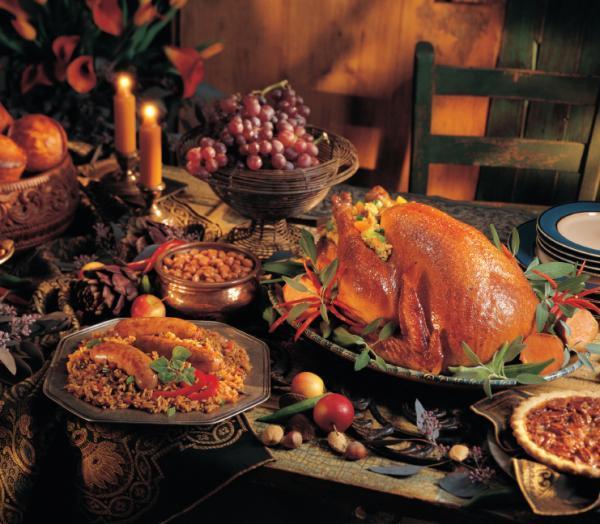Genesis 2:15″The LORD God took the man and put him in the garden of Eden to work it and keep it. 16And the LORD God commanded the man, saying, “You may surely eat of every tree of the garden, 17but of the tree of the knowledge of good and evil you shall not eat, for in the day that you eat of it you shall surely die.”
In paradise God provided man with a feast. We see in paradise all the reason for revelry. God’s presence, companionship, food and drink. Feasting and festivity was the order of the day in paradise. However, man’s feast becomes gluttony when he feasts from the one tree he was told to fast from and in that disobedience paradise is lost and man goes from feasting to fasting.
After the Fall, what we often find in Scripture, is that wherever the curse is being lifted feasting is the order of the day. When the Hebrews are oppressed and are delivered from the barrenness of Egypt they were promised a Feast — a land flowing with Milk and Honey. When the Temple is built its walls were carved with Cherubim, palm trees, and open flowers. The feasting of Paradise is recalled as God’s people traversed the Temple.
Yet, on the whole, the Old Covenant was a time of fasting and not feasting. The Messiah had not yet come and so fasting is front-loaded in the Old Covenant. This is why John the Baptist is characterized as one who came neither eating nor drinking wine. John belonged to the Old Covenant and as such was given to the fast and not the feast.
However with the coming Christ what we find is the coming of the feasting one.
“The Son of Man came eating and drinking, and they say, ‘Look at him! A glutton and a drunkard, a friend of tax collectors and sinners!’ Yet wisdom is justified by her deeds.”
And with the coming of the Messiah – the feasting one — the curse is reversed. The fact that the curse is being lifted with the ministry of Christ is seen in the reality that the first Miracle of Christ at Cana of Galilee is preformed in the context of a wedding feast. The curse is lifted, paradise is being restored, and so the feast is to commence. There is no other more fitting place for Christ’s first miracle then at a Wedding feast.
In the parable of the Prodigal Son, the Son returns and a feast occurs. This reminds us that feasting is to be the norm whenever God turns us back to Himself. Further in Matthew 22 we find the parable of the Wedding Banquet where we are explicitly told that the Kingdom of heaven is like a King who prepared a wedding banquet.
Every time God’s people gather around the Table of the Lord, it is not only a time of sobriety but it is a time of mirth and feasting for Christ has set us free from the barrenness and fasting of our sin and guilt and by His Spirit and through faith we feast on Christ who is the bread from heaven. At the table we feast because the curse has been overturned.
Finally, we are reminded that the Lord Christ promised that He would not drink of the vine again until the Wedding feast. There remains yet before us a feast of unimaginable vastness when sin is finally done away with forever and the curse, which has been reversed in principle, is finally reversed in totality. This Wedding Feast is explicitly taught in Revelation 19.

Grammar:
Original: “There is no other more fitting place for Christ’s first miracle THEN at a Wedding feast.”
Edit: “for Christ’s first miracle THAN at a wedding feast.” Comparing, not showing succession. Also, “Wedding feast” is not a proper noun, thus should not be capitalized.